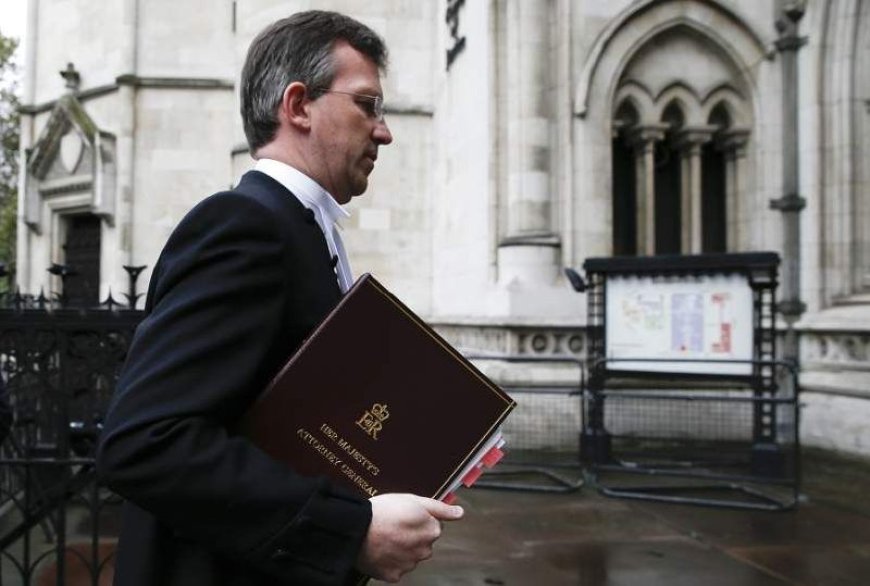Which Law is Popular in England? Why?
The Common Law encompasses customs, norms, and guidelines pertaining to the protection and governance of individuals and assets. However, this does not derive their legitimacy from a clear and unequivocal expression of legislative intent[i].

Introduction
The Common Law encompasses customs, norms, and guidelines pertaining to the protection and governance of individuals and assets. However, this does not derive their legitimacy from a clear and unequivocal expression of legislative intent[i]. The notion that decisions made by the king's courts had to adhere to common law customs across the realm served as the cornerstone of English common law. Stated differently, it is not based on written, codified laws. As a result, usages, customs, and court decisions formed the foundation of the legal system that evolved in England.
The basic ideas of common law that are embraced by American courts are thought to have originated from common law. The English common law originated at the King's Court early in the Middle Ages. Which later produced a number of workable tenets that underpin its current operation. As a result of the first English colonists asserting their birthright to the common law system. Therefore, the common law system came into being in the United States.
The common law is always evolving.
In contrast to statutory provisions, which are laws that are codified as Acts of Parliament.
This is due to the flexible manner in which magistrates interpret the law by applying the facts of the case they are hearing to earlier rulings. Drawing on their knowledge of precedent and basic logic. Unlike civil law, which is based on statutes and specific texts, English law operates on a common law basis.
The Common Law's historical roots
The common law has also existed for many centuries in England. As a result, it offers a set of uniform guidelines that are applied to resolve conflicts in all situations. Rather than depending on legislative codes, it is primarily based on the past rulings made by judges. The English common law tradition originated with the yearly recording and compilation of court rulings into volumes that judges could peruse. The Common law gained a reputation for safeguarding private property and individual rights while also being fair in the legal system.
To ensure that,
As is still the case today, laws were given priority over decisions made by lower courts. Conversely, common law is attributed to the English courts of the Exchequer, the Court of Common Pleas, and the King's Bench.
Written decisions made by judges regarding the cases they hear shape common law. The ability of Magistrates' Courts throughout England and Wales. For instance, to set and adhere to their own precedents would greatly vary local and regional customs. This is potentially to the point where local regimes are hardly distinguishable from one another.
The common law ensures that the laws of the country are "common". Nonetheless, the Criminal Division of the Court of Appeal and the House of Lords criminal proceedings set the precedent in England. Moreover, higher courts made certain rules and regulations that take precedence over those made by lower courts.
Certain situations are completely novel in terms of common law,
Also, the English courts occasionally look overseas at the rulings of other commonwealth courts. To get inspiration or direction from them. If an English court hasn't established a precedent. For example, a case decided in Canada or Australia may be brought before an English court.
This can also help to maintain some degree of stability and flexibility in the common law system. Courts often look to one another for guidance.
I obtained all of this information from the legal assignments that Law Assignment Writers produced.
Statute law and common law
Despite the common law foundation of the English legal system, statutes still have legal force behind them. Common law, in fact, provides explanations and interpretations. This is when statute law codifies certain rules, but codified law is then applied to current case law. Because of this, common law and statute law work well together. Common law keeps statute law current and relevant to contemporary issues.
Applying Common Law
Legal research is frequently required of solicitors and law students in order to ascertain the current legal position with respect to a particular statutory provision or factual scenario. This implies that in order to ascertain whether any relevant statutes exist regarding the subject matter of your research. Therefore, you will first need to look at recent—and occasionally older—higher court case law decisions to determine whether there is any additional guidance available. It's crucial to confirm that any statutes you find are still in effect after you've identified these.
Furthermore,
Make sure that no decision made by a higher court or more recent case law has reversed any previous case law rulings. For example, the common law may have been codified by a subsequent Act of Parliament, changing or amending the law, or the House of Lords may have overturned a decision made by the Court of Appeal.
What's Your Reaction?
 Like
0
Like
0
 Dislike
0
Dislike
0
 Love
0
Love
0
 Funny
0
Funny
0
 Angry
0
Angry
0
 Sad
0
Sad
0
 Wow
0
Wow
0

















































